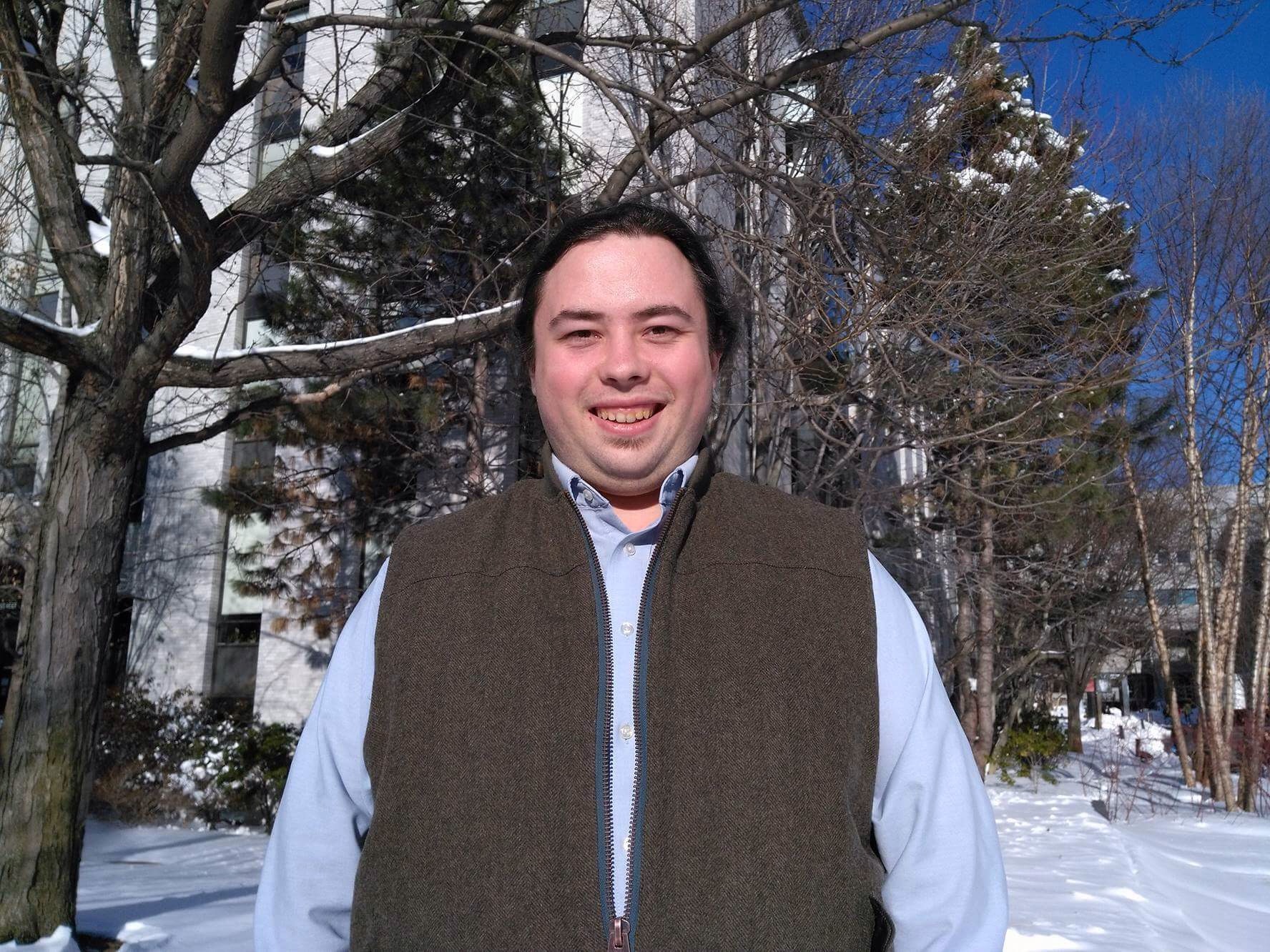Christopher Lane, a Physics PhD candidate, sits down with the College of Science Graduate Program staff to talk about what it’s like to work and study at Northeastern University.
Describe your research.
Broadly, my research is focused on theoretical questions concerning the electronic structure and spectroscopy of various novel materials, including two-dimensional atomically thin films beyond graphene, High-Tc superconductors, plasmonic nanosystems, and topological Dirac and Weyl systems. To tackle these questions we employ ab-initio density functional theory methods to give theoretical insight into experimental observations. With today’s high resolution spectroscopies extracting the origin of key features becomes impossible without modeling. Therefore the work of myself, and our group as a whole, is crucial in deciphering spectroscopic characteristics and to figure out their fundamental origin. Still, with all the methods available, some observations fall outside current understanding. These are the most intriguing. Consequently, we are continually developing new methods to capture key signatures found in experiment. To this end, I am currently working to build upon and combine the key contributions our group has made in the areas of spin-orbit coupled materials and intermediately correlated systems to be able to investigate the overlap of these two fields and the new physics produced.
What is your favorite part about Northeastern?
My favorite part of Northeastern is the people. I have found everyone on campus personable and engaging. I have especially had the pleasure of knowing and interacting with many wonderful and admirable people in my group and department.
Why did you choose Northeastern?
During my undergraduate experience at Clarkson University there was a strong emphasis on dynamical systems and non-linear phenomena, so I was naturally drawn to the emerging network science field. However, the work of the Bansil group ultimately captured me, since condensed matter systems harbor some of the richest physical phenomena due to the highly non-trivial interactions in material systems.
What is your favorite part of Boston?
In my free time I truly enjoy walking along the Charles River on the esplanade, wandering down to the public gardens to watch the ducks scamper about, and explore the number of used books stores scattered throughout the city. Also, Boston is situated in good proximity to the White Mountains in New Hampshire, the Great Blue Hills and craggy Maine coast. So a hike or camping trip is usually in order, too.
What are the perks of being a Northeastern graduate student?
A great perk, and probably most underutilized, is our free admission to the Museum of Fine Arts. The MFA curates a delightful, world class collection and has numerous superb exhibitions.
What advice would you give to an incoming graduate student?
Always keep yourself open to opportunities. Whether going to a conference, a workshop or a simple seminar, you will always learn something new that will broaden your perspectives. If a journal club or workshop does not exist, organize one! Since more often than not there are other students that would also benefit and be willing to join.
What are your plans after degree completion?
My next immediate step will to pursue a postdoc within my field.

